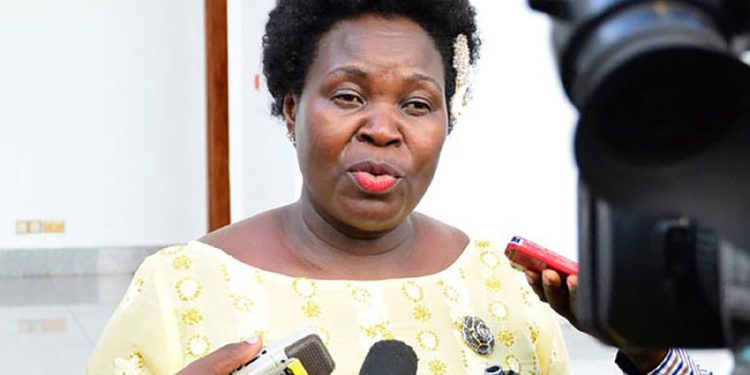Government of Uganda through the ministry of Energy has noted the recent resolutions passed by the European Union Parliament contained several distortions, hearsay, and generalizations.
On September 15, the European Parliament passed an “emergency resolution” by a large majority denouncing the consequences of Uganda’s oil projects— specifically Tilenga and the East African Crude Oil Pipeline (EACOP).
The EU Parliament called for halting of drilling activities in the protected and sensitive ecosystem (Murchison Falls National Park) and postponement of work on the EACOP for at least one year to study the feasibility of an alternative route that would preserve the environment and consider other projects based on renewable energy.
A statement by the Minister for Energy, Ruth Nankabirwa, read by the Minister of State for Energy and Mineral Development (Minerals), Hon. Peter Teko Lokeris at Uganda Media Centre on Tuesday, says the government has not yet been formally served but upon receipt, it will provide a comprehensive response to the issues raised through the appropriate channels.
“The European Parliament resolution contains several distortions, hearsay, and generalizations. At the very least, it is a blatant display of limited knowledge about the realities of Uganda’s oil and gas projects,” said Nankabirwa.
She revealed that Government values its relationships with the EU and its institutions and that it is committed to furthering partnerships in all areas, including social and community development, human rights, climate change, and mutual benefit.
She, however, noted that this partnership depends on upholding the universally accepted principles of mutual respect.
“The Government will, therefore, always welcome engagement with our Partners, including the EU, on any matter, provided there is adherence to the cardinal principles, which in Uganda’s view, are sacrosanct.”
The Minister explained that the selection of the EACOP route followed an evaluation of three routes: (i) Hoima- Lokichar- Lamu and (ii) Hoima-Mombasa, both in Kenya, and (iii) Hoima-Tanga in Tanzania.
The evaluation was based on best pipeline routing principles, including social, environmental, safety and economic considerations.
The Hoima-Tanga route was selected as the best route for Uganda after careful evaluation based on the best pipeline routing principles. In addition, Uganda has up-to-date stringent laws on the environment and protected areas, which are strictly followed in developing oil and gas projects.
The EACOP project, which is the subject of the resolution, has been designed to minimize irremediably harming the livelihoods of farmers, fisher folk and tourism business owners who depend upon the region’s rich natural resources.
According to Nankabirwa, a specific Human Rights Impact Assessment (HRIA) was therefore undertaken, and targeted measures were put in place to address any potential adverse effects on land-based livelihoods as part of the project.
“Thus, the Ministry would like to strongly disagree with the misleading narrations of human rights abuses detailed in the resolution about oil and gas projects.”
On Compensation and relocation, she said this is being undertaken in accordance with national law, cultural and traditional livelihood practices of the Project Affected Persons (PAPs) and in compliance with international standards, including the International Finance Corporation and Equator Principles.
Farming communities have been provided equitable arable land to continue their traditional income-generating practices, while others have been skilled to prepare them for jobs in upcoming infrastructure projects and other related activities. There is, therefore, verifiable evidence that the livelihoods of project- affected persons have improved because of the projects.









